体验商务英语3教案 Unit 3 3rd
- 格式:doc
- 大小:100.50 KB
- 文档页数:4
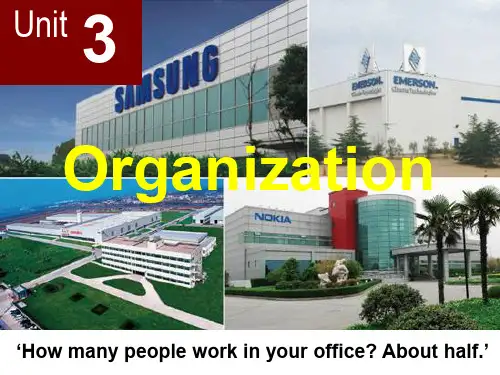
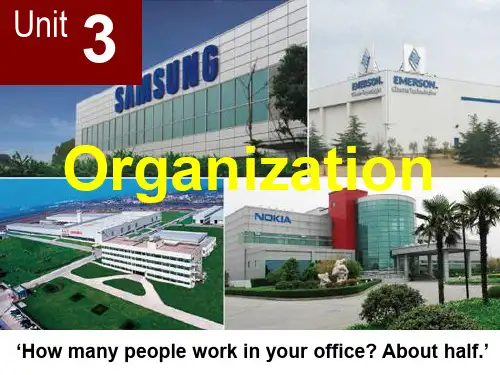
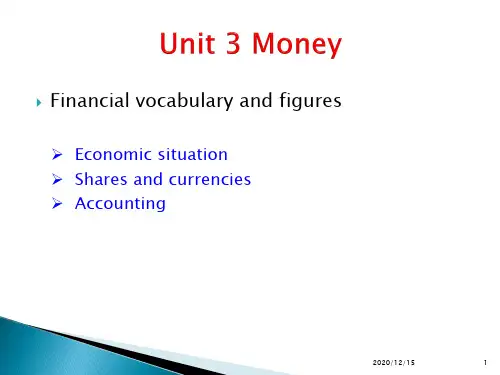
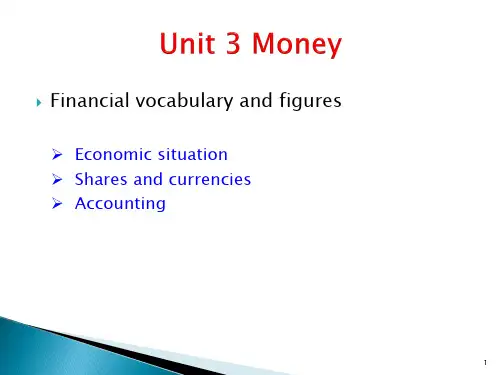

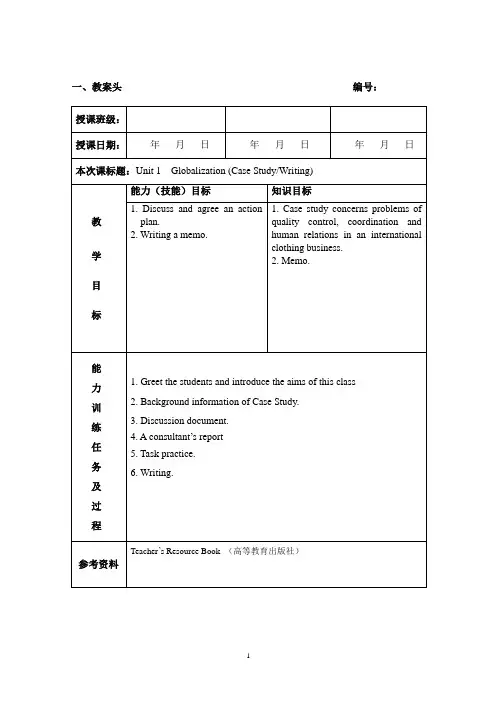
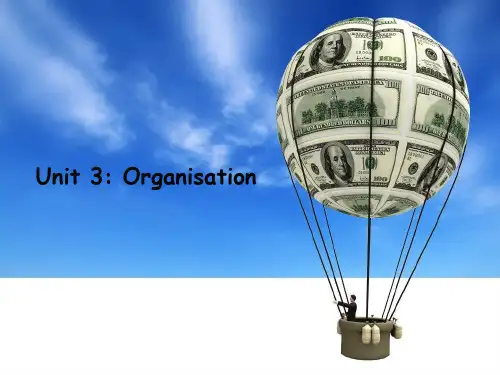
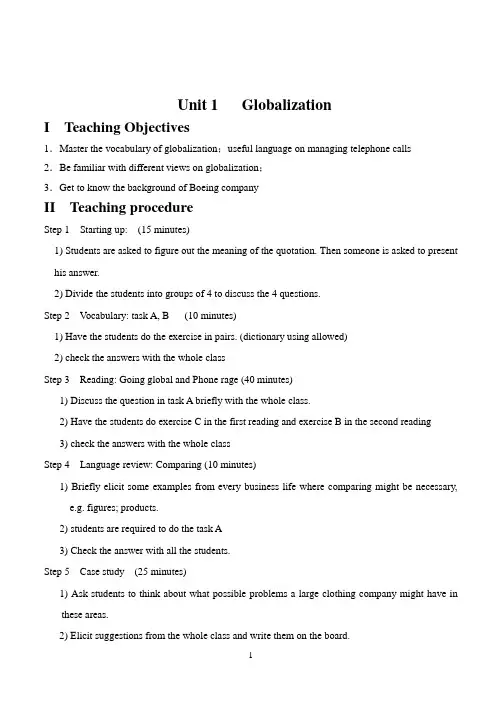
Unit 1 GlobalizationI Teaching Objectives1.Master the vocabulary of globalization;useful language on managing telephone calls2.Be familiar with different views on globalization;3.Get to know the background of Boeing companyII Teaching procedureStep 1 Starting up: (15 minutes)1) Students are asked to figure out the meaning of the quotation. Then someone is asked to present his answer.2) Divide the students into groups of 4 to discuss the 4 questions.Step 2 V ocabulary: task A, B (10 minutes)1) Have the students do the exercise in pairs. (dictionary using allowed)2) check the answers with the whole classStep 3 Reading: Going global and Phone rage (40 minutes)1) Discuss the question in task A briefly with the whole class.2) Have the students do exercise C in the first reading and exercise B in the second reading3) check the answers with the whole classStep 4 Language review: Comparing (10 minutes)1) Briefly elicit some examples from every business life where comparing might be necessary,e.g. figures; products.2) students are required to do the task A3) Check the answer with all the students.Step 5 Case study (25 minutes)1) Ask students to think about what possible problems a large clothing company might have inthese areas.2) Elicit suggestions from the whole class and write them on the board.Unit 2 BrandsI Teaching Objectives1.Master the vocabulary of talking about brands;useful language in taking part in meetings 2.Be familiar with past simple and simple perfect3.Get to know some famous brandsII Teaching procedureStep 1 Check on the answers of last-week assignments (10 minutes)Step 2 Starting up:1) Ask students, working individually, to make a list of their five favorite brand.2) Ask students to discuss the advantages of branded goods for the manufacturer and the consumer(5 minutes)3) Do exercise CStep 3 V ocabulary (20 minutes)1) Students are given 15 to finish the exercises of task A &B2) Ask few students to present their answers.3) Give explanations to some difficult terms.Step 4 Reading: (15 minutes)Questions for discussion: How can manufacturers protect their brands from piracy?1) Read the article and do exercise B.2) Have the students do exercise C and DStep 5 Language review: past simple and present perfect (10 minutes)1) Students are supposed to finish task AStep 6 Additional reading material—What’s that smell?Unit 3 TravelI Teaching Objectives1.Master the terms irritating travelers when flying; sills of making arrangements on the telephone 2.Be familiar with the usage of ―will‖3.Get to know the background of EmiratesII Teaching procedureStep 1 Check on the answers of last-week assignments (10 minutes)Step 2 Starting up: (10 minutes)1) give explanation to the quote2) introduction on Anne Morrow LindberghBorn: 6/22/1906Birthplace: Englewood, New JerseyDied: Passumpsic, Vermont, 2/7/2001Known in her own right as a writer, she was also co-pilot and navigator for her husband, Charles Lindbergh. The couple met when Anne’s father was ambassador to Mexico when Lindbergh came to visit and took the family on sight-seeing flights. Under her husband’s tutelage, Anne earned her p ilot’s license in 1931.3) Have the students do exercise B and CStep 3 Reading: Free flight offer1) Background of Emirates AirlineEmirates Airline: Dubai(迪拜)based Emirates Airline is one of the fastest growing airlines in the world and has received more than 300 international awards for excellence since its launch in 1985. Emirates now takes you to more than 80 destinations in Europe, the Middle East, the Far East, Africa, Asia, Australasia and North America.Let students see a video recording about Emirates Airline2) New wordsincentive n. sth that encourages a person to work harder, produce more or spend more moneyvoucher n.a printed piece of paper that can be used instead of money to pay for sth, or that allows one to pay less than the usual price3) Get students do exercise of task AStep 4 Reading: Passengers behaving badlyNew Words1.abusive a. rude, offensive and insulting2.verbal a. relating to or in the form of words3.assault n. a violent verbal or physical attack4.frustrate v. cause (someone) to feel dissatisfied or unfulfilled5.storm v. move angrily or forcefully in a specified directionpel v. force or oblige to do something7.adrenaline n. 肾上腺素8.cramped a. uncomfortably small or crowded9.let rip: to speak or behave violently or emotionally or without restraint10.septuagenarian n. a person who is between 70 and 79 years old11.down to: be attributable to (a factor); be the responsibility of1) Skim and scan the article to find two examples of passengers behaving badly1.A business shot out the front tyres of a plane on the runway.2. A 70-year-old hit a steward because there was no more steak.2) Check the answersUnit 4 AdvertisingI Teaching Objectives1. To enable Ss to know about advertisements, to know what factors a successful ad contains2. To familiarize Ss with vocabulary concerning advertising media and methods3. Get to know outdoor advertisementsII Teaching procedureStep 1 Check on the answers of last-week assignments (15 minutes)Step 2 Quotation: Advertising is the greatest art form of the twentieth century.‖Marshall McLuhan (马歇尔·麦克卢汉) (1911—1980), Canadian author, educator, & philosopher : Canadian academic and commentator on communications technology, who developed theories about the role of the electronic media in mass popular culture. He is best-known for the studies institutionalized as the University of Toronto’s Center for Culture and Technology, where he was direct or from 1963. McLuhan’s works include UNDERSTANDING MEDIA (1964) and MEDIUM IS THE MESSAGE(1967), in which he argued that the form of media has more significant effect on society and knowledge than the contents carried. McLuhan prophesied(预言)that printed books would become obsolete, killed off by television and other electronic information technology.Step 3 Definitions of Advertising•Advertising is promoting a product, service, brand or store.•Advertising is a paid form of communicating a message by the use of various media. It is persuasive, informative, and designed to influence purchasing behavior or thought patterns.•Advertising is defined in Webster’s dictionary ―as the action of calling something to the attention of the public especially by paid announcements, to call public attention byemphasizing desirable qualities so as to arouse a desire to buy or patronize: promote.‖Step 4 Types of Advertising•Informational advertising- describes a product’s objective characteristics—price, features, uses, etc.•Persuasive advertising - designed to shift consumers’ tastes –―Drink this beer and women will find you irresistible.‖ ― Drive this red sports car and men will love you.‖Step 5 Methods of advertisingTo reach the consumer, advertisers employ a wide variety of media. The most popular media, as measured by the amount of ad spending, are television, newspapers, direct mail, radio, Yellow Pages, magazines, the Internet, outdoor advertising, and a variety of other media, including transit ads, novelties, and point-of-purchase displays. Generally, newspapers are the most popular advertising medium, followed by television, magazines, radio, and outdoor advertising.Step 6 Discussion on the four adsStep 7 V ocabulary : Exercise BStep 8 ReadingExercise A, C and DUnit 5 EmploymentI Teaching Objectives1. Master the words or expressions related to employment2. Be familiar with past simple and past continuous3. Get to know ways to encourage new ideaII Teaching procedureStep 1 Check on the answers of last-week assignments (10 minutes)Step 2 Starting up: (5 minutes)1)―It is all one to me if a man from Sing Sing or Harvard. We hire a man, not his history.‖Henry Ford(1863—1947), American car manufacturer, was the American founder of the Ford Motor Company and father of modern assembly lines used in mass production. His introduction of the Model T automobile revolutionized transportation and American industry. He was a prolific inventor and was awarded 161 U.S. patents. As owner of the Ford Company he became one of the richest and best-known people in the world. He is credited with ―Fordism‖, that is, the mass production of large numbers of inexpensive automobiles using the assembly line, coupled with high wages for his workers. Ford had a global vision, with consumerism as the key to peace. Ford left most of his vast wealth to the Ford Foundation but arranged for his family to control the company permanently.2)Which factors do you think are important for getting a job? Choose the five most importantand give your reasons.age sex appearance astrological sign blood group referencescontacts and connections experience family background handwriting hobbies intelligence marital status personality qualifications sickness record3)Think about jobs you've had or you want to have and interviews you've attended. Ask eachother about your worst:Step 3 Reading: Choose the right candidate(20 minutes)1) Task B: Do people change during their working lives?‖Fundamentally, people stay the same. They may learn things, and later in life forget them, but basic abilities—such as language learning and numeracy—change little.2 ) Task C: What types of failures do companies experience, according to the article?People who panic; people with impressive qualifications who can't learn; hypochondriacs;unstable people; those who don't come up to expectations.3) What does a fine future behind them mean?That some people had potential when they were employed—but never realised that potential.4) Task DWord studyquick-tempered [ kwik 'tempəd ] a.性急的, 易怒的punctual ['pʌŋktjuəl] a.严守时刻的,准时的,正点的-- A punctual person always finishes everything ahead of time一个守时的人总是把事情提前做好。

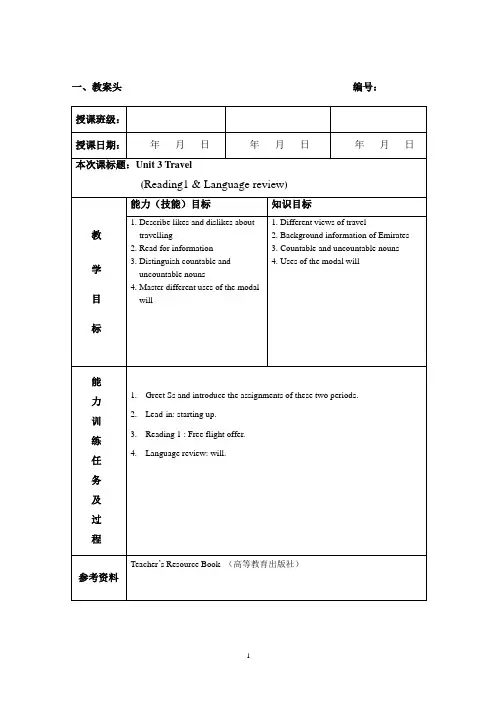

【Title of Lesson】Unit 3 Business Dinner【Text Book】Basic Business English【Teaching Objects and Demands】➢Knowledge and Ability Objects1. To let the students know some basic etiquette knowledge of Western business dinner.2. To let the students know some words and phrases about business dinner.3. To train the students’ abilities of listening and speaking.4. To train the students’ abilities of using English to make simple dialogues about business dinner.➢Procedure and Method Objects1. Through self-study, train students’ abilities of analyzing problems, solving problems and summarizing problems.2. Through group activities, train students’ team spirit ofmutual cooperation and to improve their communication ability.3. Through the competition, train stude nts’ sense of competiting and participating actively, stimulate students’ interests in learning, improve their abilities to adapt to change and enhance their thinking abilities .➢Moral and value Objects1. To enable the students to understand the importance of knowing how to organize or go to a business dinner.2. To lay the foundation for the future English communication.【Teaching Key Points】1. Some words and phrases about business dinner.2. Some sentences about business dinner.【Teaching Difficulties】How to enable students to get to act properly in a business dinner.【Teaching Aids】Multi-media computer, cards and some exercise papers; Software: Microsoft PowerPoint【Teaching Methods】Interactive teaching (learning--reciting –utilizing), discussion, questions & answers methods with the help of some games and activities.【Teaching Periods】180 minutes ( 4 Lessons)【Teaching Procedures】Step 1: Lead-in1. Show a picture of “Lunch Menu”, ask the Ss to try to order some food.。
一、教案头授课班级:授课日期:年刀 日年刀 日年 月 日本次课标题:Unit 3 Travel(Case study and Writing)能力(技能)目标知识目标1 ・ Comprehend the definition of 1. Definition of seminar教seminar2. Background information of IDP2. Understand the background of IDP3. Arranging the seminar3. Role play of arranging the seminar4. Writing an e-mail 字4. Write an e-mail to the manager ofthe hotel目标1. Greet Ss and introduce the assignments of these two periods.2. Lead ・in: Review what they have learnt.3. Case study: The team-building semina 匚4. Writing an e-mail.Teacher's Resource Book (高等教育出版社)参考资料能 力 训 练 任 务 及 过 程编号:二、教学设计步骤教学内容Activities (学生活动)Time(时间)告知(教学内容、目的)1.Lead-in: Review what they have learnt.2.Case study: The team-building seminar3.Writing an e-mail.讲授2m引入(任务项H)Lead-in: Review what they have learntAsk Ss to answer the following terms:1) air rage 2) luggage 3) crew 4) steward 5) alcohol6) passenger 7 attendants提问Ss are required to answer thequestio ns.5m操练(掌握初步或基本能力)Case study: The team-building seminarA computer software company in Los Angeles is organising ateam-building seminar in Vienna for its managers・情景教学Ss learn this part in groups.20m深化(加深对基本能力的体会)TaskYou are either:Manager, IDP^s travel service ( tum to page 151) or Head,Corporate Travel, Universal Airlines (turn to page 153) Youshould keep these roles throughout the case study.务动学任驱歡Ss have a role play・35m归纳(知识和能力)1 ・ Seminar:2. Vocabulary: key words and useful language associated witharranging the seminar.讲授Ss note down the key points.8m训练(巩固拓展检验)Writing:As Head of Corporate Travel at Universal Airlines, write an e-mail to the manager of the hotel chosen for the team-buildingseminar. Confirm the booking, giving details of the number ofparticipants, arrival and departure times, meals, equipment andany other special requirements.写作练习Ss practise the writing・15m总结1 ・ Comments on having the role play2. Methods of writing an e-mail・归纳讲述Ss make a summaryindividually ・3m作业Ask Ss to write an e-mail to me before Friday. 2m 后记Period III: Case study and WritingSteps (步骤)Methods & Tasks (方法、任务)Introduction Lead-in: Review what they have learntAsk Ss to answer the following terms:1) air rage 2) luggage 3) crew 4) steward 5) alcohol 6) passenger 7 attendantsStep One Background:1)Books closed,find out how many of your Ss have been to Vienna and briefly elicit details.2)Tell Ss the title of the case study is the team-buiding seminar and elicit some of the things a team-buiding seminar might cover 弓who might attend and what the aims might be.3)Write the following on the board, minus the answers in brackets:IDPLos Angeles20ViennaFourFridaySunday4)Tell Ss to open their books and read through Backgroud to find out the significance of each one and check what the tean-buiding seminar in the case study is actually for and what it will consist of.5)Check the answers with the whole class.Step Two Part A1)Make sure Ss realise there are four separate but interlinked stages and that they shouldkeep the same role throughout.2)Put Ss in pairs and assign-or get them to choose-roles・ Give them a few minutes toread through the instructions to Stage 1 and the information file relating to their role,checking any vocabulary in their dictionaries or with you.3)Remind them of their work on telephoning in this unit and in Unit 1, and encouragethem to draw on the language and skills they have covered・4)If possible, sit Ss back-to-back for the role play. Circulate and monitor. If some Ssfinish early , tell them to go on to Stage 2.Part B1)Give Ss a few minutes to read through the fax.2)Tell them to close their books and see if they can remember the names of thehotels (Monarch and Dorfmann),the main points about them ( city centre, 5-star versus countryside outside Vienna, 4-star) and date suggested for the meeting (Wednesday 28 Ausgust).Step Three PartC1)Give Ss a few minutes to read through the instructions to Task 3 and the informationfile relating to their role, checking any vocabularly in their dictionaries or with you.2)Elicit some language for making and changing arrangements and write suggestionson the board.3)In pairs, Ss work with a different partner to the one they worked with Stage 1 ・Again sit Ss back-to-back if possible. Circulate and monito匚4)Tell Ss who finish early to start preparing for Task4・5)With the whole calss, find out what Ss agreed for their rearranged meeting.6)Put Ss playing the same role in small groups and give them a few minutes to preparefor the negotiation.7)Allow plenty of time for feedback and discussion at the end・Step Four Writing:Do the task collaboratively in class, or alternatively set it for homework.Conclusion ments on having the role play2.Methods of writing an e-mail.HomeworkAsk Ss to write an e-mail to me before Friday. postscript。